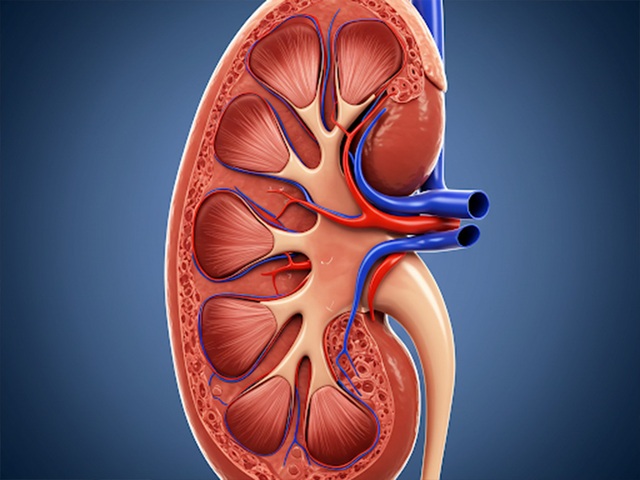Starting the day with health news , readers can also read more articles: Using honey properly; Doing this from the age of 40 can prevent kidney disease from progressing ; Why does meningococcal encephalitis tend to break out in the summer?...
Lower cholesterol and blood sugar with scientifically proven drinks
High cholesterol increases the risk of cardiovascular disease, including coronary heart disease, stroke, and peripheral vascular disease.
Additionally, high blood sugar, if left untreated, can cause serious health problems, affecting the eyes, kidneys, nerves, and heart. Thankfully, there is a favorite beverage that may be the key to tackling high cholesterol and blood sugar – green tea.
Green tea may be the key to tackling high cholesterol and blood sugar
Photo: AI
Green tea has metabolism-boosting properties and may help lower bad cholesterol levels. Green tea contains many plant compounds that may improve heart health. A 2020 review of 31 studies found that green tea helped lower bad LDL cholesterol and total cholesterol levels.
Studies have shown that the active ingredient EGCG - the main catechin in green tea, has the ability to reduce LDL and total cholesterol, thanks to its strong antioxidant effects that help reduce inflammation.
Furthermore, polyphenols in green tea may improve endothelial function, an important aspect of maintaining cardiovascular health. The next content of this article will be on the health page on May 16.
Doing this from age 40 can prevent kidney disease from progressing
Kidney disease is one of the most common chronic diseases today, with the incidence of the disease increasing. So how to recognize the symptoms of kidney damage before the disease progresses?
Kidney disease is often called the "silent killer" because it often shows no symptoms until the disease has progressed significantly .
Kidney disease is often called the "silent killer" because the disease often shows no symptoms until it has progressed significantly.
Photo: AI
Unlike routine tests for blood pressure, blood sugar, or cholesterol, kidney function tests, especially a simple blood creatinine test, are often overlooked. This omission can delay diagnosis until the condition becomes severe.
Don't ignore the warning signs. Recognize the symptoms of kidney damage early and take control of your health. Regular check-ups after 40 can make all the difference, advises Dr. Tarun Kumar Saha, a nephrologist and kidney transplant specialist at Yashoda Hospital, Hyderabad, India.
Early kidney disorders can present with subtle or nonspecific symptoms that are often mistaken for other health problems. Therefore, if you experience any of the following conditions including fatigue, swelling, unusual urination, or unexplained high blood pressure, you should seek prompt evaluation through blood, urine, and imaging tests for confirmation. The next content of this article will be on the health page on May 16 .
Meningococcal meningitis: Why does the disease often break out in the summer?
Meningococcal meningitis is a serious infection caused by the bacteria Neisseria meningitidis. The disease can cause meningitis and sepsis.
Master - Doctor Nguyen Hien Minh, Deputy Head of the Vaccination Unit, University of Medicine and Pharmacy Hospital, Ho Chi Minh City, said that meningococcal meningitis progresses very quickly, if not treated promptly, the patient can die within 24-48 hours. Even with treatment, the mortality rate is still 10-15%, and among the survivors, 1 in 5 people may suffer permanent sequelae such as deafness, blindness, chronic kidney damage, brain damage, mental retardation, or amputation, post-traumatic stress disorder (PTSD).
A case of meningococcal meningitis in Ho Chi Minh City
PHOTO: BVCC
According to Dr. Nguyen Hien Minh, meningococcal meningitis can occur year-round, but tends to increase in the summer - when it is hot and humid. Some reasons for the increase in cases:
Increased close contact : Summer camps, festivals or travel facilitate the spread of infection due to large crowds and group activities. We are more likely to come into direct contact with respiratory pathogens through droplets from the nose and throat of an infected person when they cough, sneeze or talk.
Dehydration: Harsh sunlight, poor personal hygiene, and poor nutrition can make the immune system more sensitive to pathogens, especially in young children and people with underlying medical conditions.
Changes in the mucosal immunity of the nose and throat due to heat, dust, and pollution in the summer weather (especially in urban areas) make the respiratory tract drier and more vulnerable, creating favorable conditions for the bacteria Neisseria meningitidis to develop and invade. Let's start the day with health news to see more content of this article!
Source: https://thanhnien.vn/ngay-moi-voi-tin-tuc-suc-khoe-loai-thuc-uong-giup-giam-cholesterol-va-duong-huet-18525051523453812.htm





































































































Comment (0)